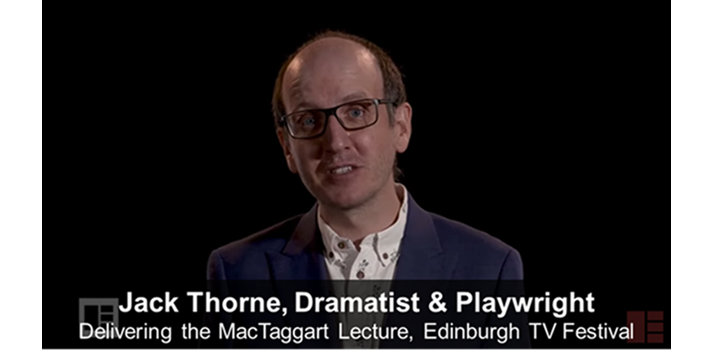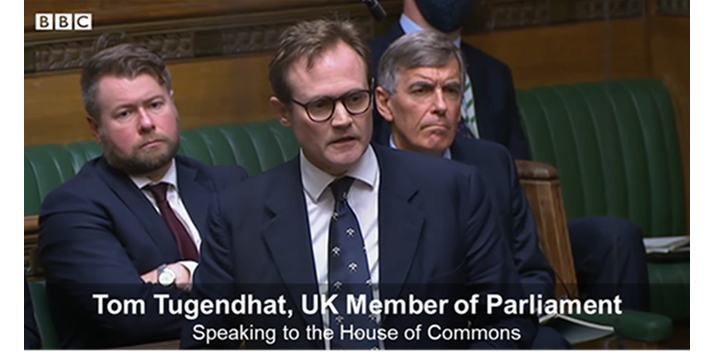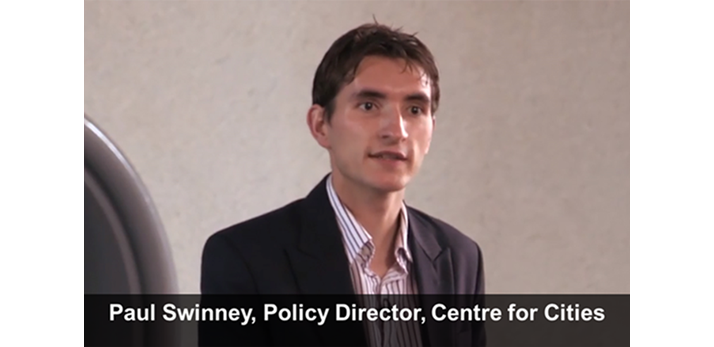
“I’m weird and shy”
Addressing the elephant upfront
- Superstar writer Jack Thorne has put words into the mouths of everyone from Harry Potter to Julia Roberts. But he says he’s not comfortable in front of the camera. And he looks it.
- So, at the start of his powerful Edinburgh TV Festival MacTaggart Lecture about disability, he pointed out exactly that: “One piece of housekeeping…I’m weird and shy. I might not look up as much as I should.”
- Thorne pre-empted what the audience might be thinking, and he articulated it. It’s a powerful way to mitigate the risk of losing their focus.
- Next time your voice is croaky, there’s a lawnmower in the background, or you’re sweating under lights, consider Thorne’s approach. When you mention it, you neutralise it.
The lesson for leaders: Describe the distraction and win back your audience’s attention.

Have you mastered your listening face?
Congruent communication for a split screen world
- Bumble CEO Whitney Wolfe Herd is one of the most polished performers in Silicon Valley. On earnings calls, on TV news, on podcasts, she’s consistent and compelling.
- We’ve noticed she’s mastered a weapon that’s now an important part of the leader’s comms arsenal: listening face. This recent interview with Goldman Sachs TV is a good example.
- When someone else talks, Wolfe Herd is conscious not just of listening, but of looking like she’s listening. Poised, attentive, ready to respond.
- It ensures her communication is congruent: that her message and her demeanour are aligned. And she’ll never get caught out by being on camera unexpectedly – like this.
- As events, panels, and meetings continue to be virtual, leaders are spending more time than ever in split-screen. How you look when you listen is worth worrying about.
The lesson for leaders: Behave as if you’re continually on camera, until the call is over.

Shhhhhhhhhhh!
When inverting your instincts increases your impact
- Of all the rhetoric that followed the US withdrawal from Afghanistan, this speech from UK MP Tom Tugendhat really cut through, in parliament and later on social media.
- But watch how much of his impact derives from him doing the opposite of what many leaders do when they seek to make a powerful point.
- We find that many leaders feel the need to increase the volume of their delivery on critical points. Tugendhat turns it down. “It’s shameful” he says, at 2:40 – barely above a whisper. His colleagues listen in total silence.
- Often leaders want to speed up their delivery when they’re under pressure. Tugendhat embraces pauses, despite the pressure. There are good examples from 0:30.
- In this particular context, slowness and quiet act like a lightning rod for his audience’s attention.
The lesson for leaders: High -volume and high -speed don’t always equal high impact. In some contexts, it’s the reverse.

It’s how big?
How to make numbers make your point
- This summer, a think tank report made headlines, first in one UK national newspaper, then another, and another. Why? It contained a single brilliant comparison.
- The UK’s ‘levelling-up’ agenda would cost “as much as the reunification of Germany”, said The Centre for Cities’ Paul Swinney.
- We often use comparisons to help put numbers into perspective. Some are cliches. You’ll often find journalists describing something as “as long as three football pitches” or “covering an area the size of Luxembourg”.
- But your comparison can work harder. The right one will come ready-packed with associations that can make your message more resonant. The reunification example quietly implies that the economic ‘levelling-up’ of the UK’s north and south is:
- Morally necessary
- Likely to be judged well by history
- Going to need serious government spending
The lesson for leaders: Work to find a comparison that’s relevant to the message you’re trying to land. Don’t be tempted by Luxembourg.

